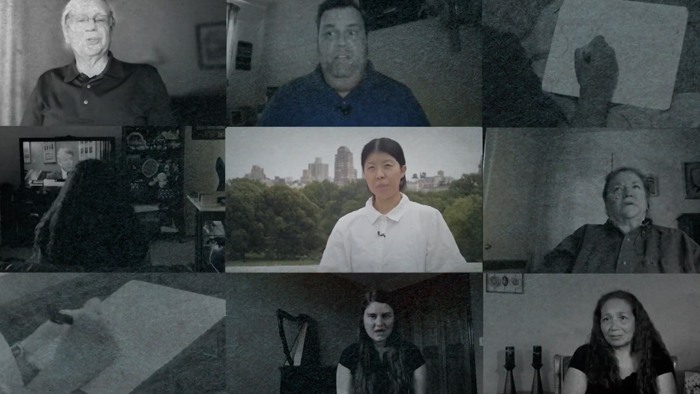For These 5 Americans, the First Amendment Is an Everyday Essential

The First Amendment isn’t just lofty language.
For many Americans, including five we asked about it, it’s 45 words that they are living every day.
The Freedom Forum surveyed more than 3,000 people in late summer 2020 to find how their values and attitudes shape their feelings about the First Amendment. “The First Amendment: Where America Stands” finds near-universal support that the freedoms of religion, speech, press, assembly and petition are vital and essential today. We interviewed dozens of survey participants to get more insight into their thoughts about the First Amendment. Here are some thoughts from five of them.
Bora Kim emigrated to the United States from South Korea as a young girl. “I was coming from a country and a culture that I should say, maybe didn’t value or prioritize the freedom of expression or holding one’s own opinion as valued. So when I came to the States … being taught to really voice myself and to respect myself as an individual was really validating and … empowering.”
Today, Kim lives in New York City and advocates for artists and their right to free expression — an everyday extension of her First Amendment freedoms. “My work in supporting them is in a way allowing that freedom of speech and expression to be possible for these individuals.”
Eric Arroyo grew up using his freedoms of assembly and petition as a child of the ’60s fighting for civil rights, women’s rights and gay rights. “There was the youthful movement of saying, ‘This is wrong.’ Why can’t Blacks vote? Why must women be told what to do with their bodies? Why must you have Latinos and Asians … being treated as second-class citizens?”
“I marched, sat in, boycotted … all peacefully,” said Arroyo, now retired in the Bronx, N.Y., from economic development work. He worked for progressive candidates and tried to effect change. “Power was challenged, and unfortunately people were killed. And people sacrificed on behalf of that highest principle that we are in fact equal and should have equal access to the law.”
For Ruben Moreno of Tucson, Ariz., speech is his most valued freedom. “I’m a gay American, so I need to be able to express myself doing a Pride parade, during a job interview, for healthcare. It’s important that everybody, no matter who they are straight, gay, trans … that they are able to be who they are and speak their truth with their authentic selves. If that’s taken away, I mean, that’s a huge tragedy, not just for Americans, but for America.”
Raised in a fundamentalist faith, Moreno now exercises his First Amendment freedoms by opting out of organized religion. Speech is his most valued freedom, but press is a close second. “Look, if you want to be like Russia or North Korea or Brazil or any other dictatorships in the world, you’re going to want to limit freedom of the press because you don’t want free thought to get around,” Moreno said. “You don’t want people thinking on their own.”
Rise Briggs, a picture framer and farmer in Roseburg, Ore., is also concerned about freedom of thought. Active on various community boards, Briggs has lately felt that free speech — her most treasured freedom — is under attack.
“I don’t expect people to agree with me, but I expect people to think,” says Briggs, a Native American. “I’ve always written the letters to the editor and things like that as I process. It gets people to either get fired up and do something or … something along those lines. But I didn’t expect a lot of venom and that’s what I’m getting now.”
Still, she opposes the idea of campus “safe spaces” where speech is limited for college students. “You must allow the ideas to be heard,” she said. Nor does she believe in the idea of hate speech, defining the term as “made up to silence people.”
“If you believe in the First Amendment, you can say whatever you want. It affords you the ability to be heard and to have conversations and dialogues and resolve issues that may need to be able to have people debate.”
Religious freedom is most vital to Robert Gray, whose family fled Germany and Switzerland for Pennsylvania in the late 1600s due to religious persecution they experienced as Mennonites.
Gray, a CEO who lives in Terre Haute, Ind., worries about the lack of responsibility people exhibit in exercising their freedoms today. “If I know my speech is going to hurt somebody and take away their rights, maybe I should think a sec … and engage my brain before I put my mouth in gear.”
For Arroyo, it all comes down to five freedoms. “I value the First Amendment because it presents me with five rights that I have to live my life and enjoy my life in the company of my fellow citizens.”
Watch more Americans share their First Amendment views and questions, plus expert answers.
Patty Rhule is the chief content officer and vice president of the Freedom Forum. She can be reached at prhule@freedomforum.org.
Pink Slime Journalism: Separating Ethical News From Propaganda
How to Write a Letter to the Editor: Examples, Tips and More
Related Content

